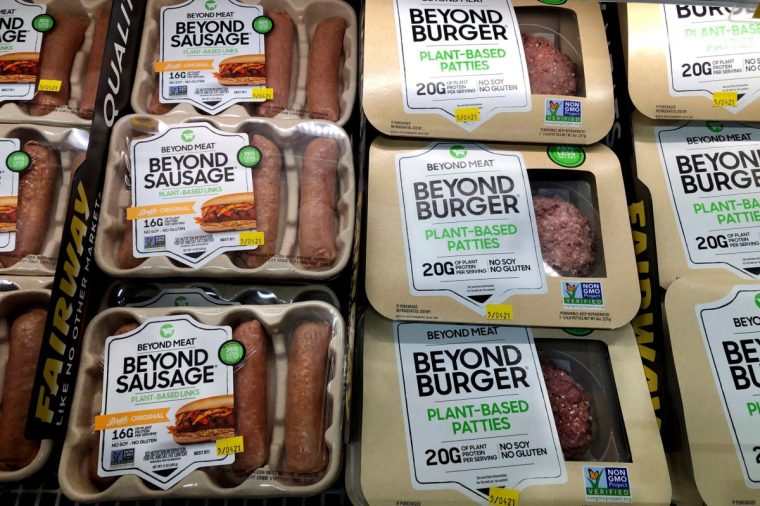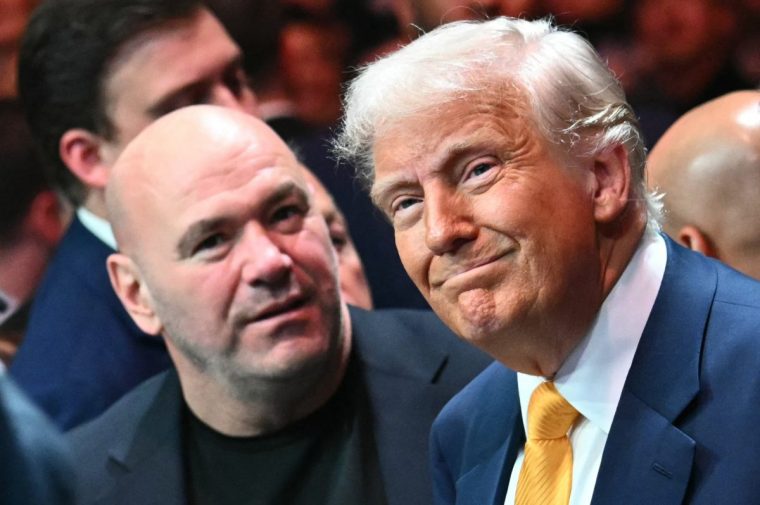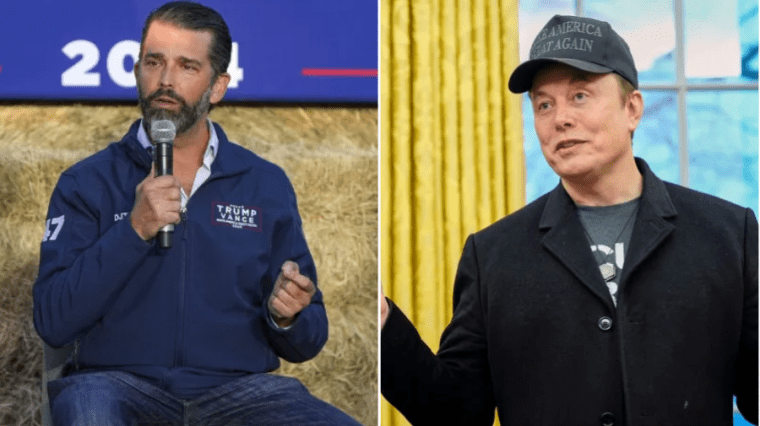This past week, Donald Trump’s supporters cheered what they saw as a great victory for their cause.
The plant-based “meat” brand Beyond Meat, which barely six years ago was riding high with celebrity investors including Bill Gates and Leonardo DiCaprio, is on the verge of collapse.
Trump fans crowed over the company’s fall, declaring on social media that its food “tastes like potted meat” and “never cooks well”.
A Trump supporter called Kuaroo, who brags that one of his pastimes is “destroying wokeness”, mockingly posted: “Life is short. EAT MORE MEAT & LIVE.”
The remarks sum up why Beyond Meat and other vegan meat companies have struggled since their high point before the pandemic: a cultural backlash led by so-called hyper-masculine influencers, especially those in the “manosphere”.

In recent years, there has been a profound shift among men towards eating more meat, especially younger men striving to attain an “ideal” male body, which is part of a wider pushback against “wokeism” and environmental concerns.
The consequences for Beyond Meat are stark. A company that was worth $240m (£179m) when it went public in 2019 is now struggling under $1.2bn of debts, prompting its shares to drop below $1 last week.
The trend is not limited to the United States. In Britain too, vegan food sales dropped by more than 13 per cent between 2023 and 2024, with companies like Meatless Farm and Allplants going into administration.
Some of the biggest anti-vegan influencers, or “meatfluencers” as they have been dubbed, include the Liver King aka Brian Johnson, a health and fitness personality who has 6.1 million followers on TikTok.

Johnson, the star of a Netflix documentary, promotes the benefits of what he calls an “ancestral lifestyle”, claiming that devouring raw organs makes himself jacked. Only much later was it revealed that he actually used steroids to achieve his physique.
Andrew Tate, the toxic online misogynist who denies charges of rape and human trafficking, is big on meat, as is popular podcaster Joe Rogan, who backed Trump’s run for the presidency. Rogan’s guests have included Lex Fridman, the author whose 2018 book The Carnivore Diet is hugely influential in the “manosphere”.
When Rogan tried the diet – which consists solely of animal products, completely eliminating all fruits, vegetables and carbohydrates – he told his 190 million monthly listeners that it was “the best I ever felt like, literally, the best I ever felt all throughout the day”.
Such messages seem to be working and in the US, research from the Pew Research Center last year found that one fifth of young American adults were now getting their news from male, right-wing social media influencers.

Timothy Caulfield, a professor at the University of Alberta who studies male health trends, said that we are now “living in the era of the manosphere”.
He said: “We have seen this profound shift towards the idea we need more manly men, that masculinity has been under attack.
“There is no evidence to support any of that but there’s no doubt it’s prevalent.
“Joe Rogan and even extreme influencers like the Liver King dominate our information environment. The shift to the power of the influencers has been profound.”
Eating a lot of meat has now become as much about marking cultural allegiance as nutrition. Professor Caulfield said that the growing fetishisation of meat was part of this wider trend towards celebrating traditional masculinity and rejecting alternative ideas of that. Studies show that the more men lean towards masculine norms, the less likely they are to embrace LGBTQ rights.

The role of the Trump administration in reinforcing this narrative is “huge”, Professor Caulfield said.
“The rise of the manosphere is one of the reasons Trump was elected,” he said. “There is a very tight relationship between the two and Trump has very much embraced its themes.”
Key figures in the Trump administration have been unabashedly pro-meat, notably the Health Secretary Robert F Kennedy Jr, who once dumped a dead bear carcass in New York’s Central Park and now brags about eating “a lot of protein”.
Other Trump allies have even made the baseless claim that vegetables cause climate change, rather than the meat industry, which is a major producer of the greenhouse gas methane.

Trump’s son Donald Jr has posted on social media telling his 10 million followers: “We must ban fake meat to save the planet!!! Lab-Grown Meat Produces Up To 25 Times More CO₂, Study Reveals.”
Elon Musk, Trump’s former special adviser, told Rogan’s podcast that eating less meat would not make a difference for the climate. “Eat as much meat as you want. It’s not going to make a difference,” he claimed.
The group being most influenced by these messages is younger men, who are often impressionable. The prevalence of this pro-meat, anti-plant mentality could do them “real harm”, Professor Caulfield said.
“I’ve interviewed people who have an eating disorder because of messaging in the manosphere,” he said. “One of the sad things about the manosphere is….that it says this is the only way forward, it narrows your future.
“That’s terrible for teenagers and young men who are exploring themselves and who they want to be.”

Research from May from Hubbub, a UK-based environmental charity, echoed those concerns. Hubbub’s study found that 17 per cent of young men aged 16-24 were uncomfortable eating plant-based foods with family and friends, compared with 11 per cent of all men.
One participant in the study summed up his views by saying: ‘“No one wants to be the guy in the pub ordering a veggie burger,” a quote which points to the stigma among men that is attached to going vegan.
It also found that men aged 16-24 were twice as likely – 38 per cent – to say they were eating more meat than a year ago, compared with 18 per cent of men of all other ages.
Mark Breen, head of food at Hubbub, told The i Paper that in the past few years there had been a “general trend that young men seem to be making [nutrition] decisions based on performance and strength”.
He said: “This group of young men grew up in lockdown and spent a lot of time on computers or their phones at quite formative stages of their development.
“These influencers can set unrealistic expectations around what’s possible for young men, and everything becomes very competitive, who can have the best body, the best job, building success around that rather than happiness and health.”
Breen pointed out that both the Liver King and Eddie Abbew, another “meatfluencer”, had both admitted taking steroids to get bodies they previously claimed were just from eating meat.
“That’s a fallacy,” Breen said. “Because you won’t get a body like from eating meat, you’ll get it from really intense tanning that would be quite damaging, and performance- enhancing drugs”.
Marion Nestle, a renowned professor of nutrition, food studies, and public health at New York University, said one issue was that plant-based products “don’t taste as good as meat”.
“Once people try them, they don’t go back for more,” she said.
However, she added: “The predominance of science supports dietary patterns reduced in meat as beneficial to human health and to the environment.”
Up against the Liver King, that message is proving as popular as an overcooked steak.
